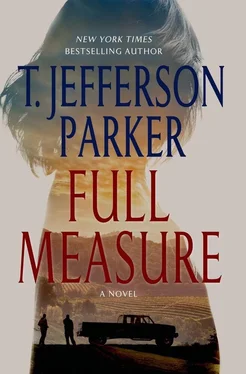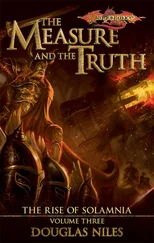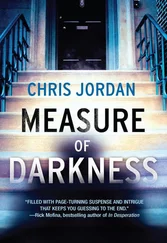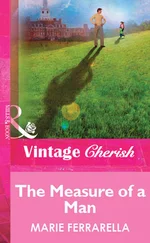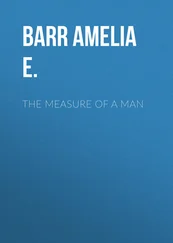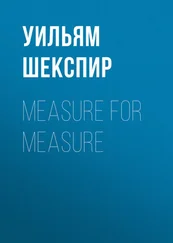“Halfway there!” She sounded daft even to herself.
“I couldn’t see you. I’m so sorry. Let’s get you outta here.”
“Ready when you are.” Evelyn watched the downhill cars slow for the flashing truck lights. Two of the drivers stopped and Evelyn, released by the woman, crossed the lanes and stepped onto the sidewalk. She turned to see the southbound drivers allowing the woman in the pickup truck back into the lanes, the flashers going off, and the truck pulling away.
Still trembling she called Brian from her car in the post office parking lot. He heard her fear immediately. She explained what happened in a detached voice, her adrenaline-moderated panic only now free to bust loose. Brian was the calmest and most capable man she knew, her rock and anchor. Evelyn felt as if she hadn’t seen him in weeks, maybe years. Had she? Really seen? He said he would be there in two minutes to bring her home.
“No,” she said. “The Econo.”
“The Econo?”
“Please.”
“The kids are done eating and homework is light. Give me ten.”
“I’ll get number twelve.”
She was waiting for him at the door of room twelve of the Fallbrook Econo Suites when Brian knocked. Her heart thumped crazily and her nerves buzzed. He came in, set a bottle of wine on the table, and Evelyn attacked.
Iris Cash lived in a freshly painted green bungalow with white columns, a spacious front porch and late-season flowers still nodding in the planters. A pumpkin carved with a toothy grimace stood on the railing, candlelight steady within. Patrick parked in the steep short driveway and set the brake and looked at the house. It was up on Skyline in an older part of Fallbrook and when Patrick got out of his truck he could see the rooftops of downtown and the cars on Main, headlights on in the near darkness. He went around and got the bouquet off the passenger seat.
She met him at the door wearing a forthright smile and a snug yellow dress. Her hair was up. She made a fuss over the flowers, which were sunflowers, protea, and purple statice. Once inside Patrick liked the burnished walnut floor, the stout beams and wrought-iron brackets above, the framed paintings and photographs, the built-in bookcase.
“Mom said I’m supposed to put those in a vase for you,” he said.
“Right this way.”
“Great house.”
“I grew up on a farm so I like the old things.”
“You’re the farmer’s daughter.”
“Except I don’t like farming and don’t want any part of that life.”
“I feel the same way, except I do have a part of it.”
“You have a disaster to deal with. That’s a little different.”
In the kitchen she handed him a heavy cut-glass vase and Patrick filled half of it with water. She handed him a pair of curve-bladed pruners and Patrick looked at them and figured he was supposed to trim the flower stalks. Advanced manners were something he hadn’t learned, having gone from high school straight into the Marines then to Afghanistan. He’d graduated from a laptop to a machine gun in a matter of months. So he’d also missed a lot of everyday things, like how to balance a checkbook or make something to eat other than a sandwich. Or how to pick out cool clothes or order a decent haircut. Or how to talk to a pretty woman without your blood pressure spiking. “Maybe just like an inch or so?”
“Perfect. I see you got your head fixed. The stitches, I mean.”
“Good as new, Iris.”
She showed him the house, though he got just a peek of her bedroom. The house reminded him of an old TV show or maybe a magazine feature on the homes of yesterday. There was no stainless steel and few hard edges. Lots of fabric and curves. He liked the aerial photograph of the Cash family farm that hung in the dining room. Also in the dining room stood a majestic china cabinet, lit from within. “Great-grandma’s,” said Iris. “Handmade. Mom let me have it early.” Through the cabinet windows Patrick saw plates and bowls of all sizes, flower vases, platters and mugs. Iris’s place reminded him of the Norris home, although some of Iris’s artwork was modern and baffling. He wondered what Iris would make of the big portrait of his grandfather and great-uncle glaring down from above the mantel. He pictured her standing in that room in the yellow dress she now wore, and in his imagination she drew all the light and the room was dim — she alone was specific and clear.
They walked into the backyard. Small copper lamps threw light in neat low circles. Patrick saw a brick patio with a picnic table and benches beneath an arbor that was owned by a fat grape vine twinkling with lights. Downhill was a small lawn with a good-sized magnolia tree in the middle and more lights dangling in the low branches. The fence was overgrown with bougainvillea. Patrick looked at all this, surprised to be interested in it. The ordinary really could be awesome. The picnic table was set with a fancy cloth, utensils, two bottles of wine, and four glasses. “Do you like red wine or white, Pat?”
“Yes, I do.”
“But which more?”
“Oh, both about the same.”
She smiled and handed him a corkscrew. “Then maybe you could open that white and we’ll have a glass before dinner.”
“No screw top? Just kidding.” Although he wasn’t. Opening wine bottles was another skill that, as an eighteen-year-old on his way to becoming a platoon machine gunner, Patrick had not learned. He found the foil cutter and folded it out and got the heavy metal wrapper off. The opener was pretty much self-evident. The pop of the cork surprised him and he felt a quick bolt of adrenaline shoot through him. “Look, I didn’t dive for cover!”
She looked at him uncertainly.
“Just kidding,” he said. “Again.”
He poured two glasses, slopping some on the nice tablecloth and trying to mop it with his finger. Iris lit candles and turned on music that played through a pair of tiny speakers. They sat side by side at the picnic table, looking out over the rolling hills of Camp Pendleton. It stretched all the way to the beach, which he pictured, wincing as he remembered the brawl with the MPs. He could feel the now smaller bandage up there, obnoxious on his skin. He banished the incident from his mind and concentrated on what was before him: the U.S. Naval Weapons Station, the railroad tracks stitching to the coast, the broad black sky above. He could feel Sangin reaching back for him through Pendleton, where it had all started — enlistment, training, deployment. From here Pendleton looked peaceful and sparse, a face put on for civilians, not at all like the war machine it was.
“We’re not in Kenton, Ohio, anymore,” said Iris. She told him a few things about her childhood and she used good words, which made it easy for Patrick to see: the endless cornfields with the farmhouses built up close to the straight flat roads; the barns and outbuildings farther back; the streams wandering by, sheltered by green thickets of poison ivy and sumac, copperheads, water snakes, and turtles. She told him that summers got so hot the asphalt edges of the roads would bubble and melt and stick to your shoes. She had a big black horse named Elmer and he was gentle as could be. And after he died she got a yellow mare named Calliope. There in Ohio, said Iris, it was all about the Browns, the Reds, and the Indians, and, of course, the Buckeyes. If she never saw Kenton again it would be too soon.
“Except to see family,” she said. “It’s funny, though — I have good memories of a place I never want to go back to. Mom and Dad, they were married to the corn crop, but they sure got us kids around after harvest. We went to D.C. and New York, Boston, Chicago, all through the South, to St. Louis and Denver. Then later to L.A. and San Diego. Patrick, I took one look down at San Diego when our plane was landing and I knew I was going to move close to there. I was twelve. Here’s another funny thing. Years later, when I came out here just after college, I drove around the whole county for two weeks, looking for just the right place to find a rental and a job. And of all the extra cool places in San Diego County, I picked Fallbrook, which is the most like Kenton. Oh yeah, I’m a brave one. Not exactly Magellan!”
Читать дальше
